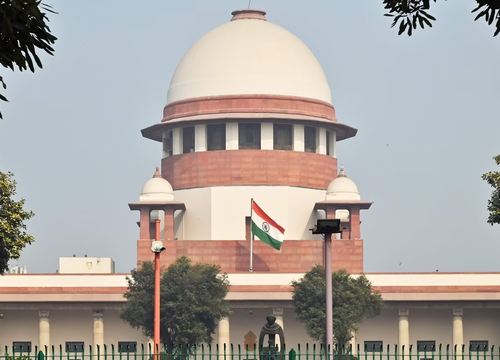New Delhi: The Supreme Court on Tuesday dismissed a public interest litigation (PIL) seeking appointment of experienced lawyers as judicial members at all vacant seats of the Armed Forces Tribunal (AFT).
“When selection starts, any advocate can apply… Search Committees are presided over by a sitting judge of the Supreme Court. Whenever the selection process begins, anybody can apply and they will be considered,” a bench headed by Chief Justice of India (CJI) D.Y. Chandrachud told the petitioner-in-person as it dismissed the plea.
The PIL sought a direction from the apex court to appoint advocates practicing at AFTs and Central Administrative Tribunals for not less than 10 years as “Judicial members at all the vacant seats across 17 benches of Armed Forces Tribunals in the interest of Democratic Rule as promised in the Preamble of the Constitution”.
The plea filed by a Gurugram-based lawyer said that the AFT– a specialized judicial body to address legal grievances of armed forces personnel – despite having its critical role has faced significant challenges, particularly in the appointment of judicial members.
It said: “The situation in Jaipur, for instance, was particularly concerning, with the Regional Bench non-functional since 2016 due to a lack of judicial and administrative members. This has had a detrimental impact on both retired and serving defense personnel, affecting their access to justice and causing demoralization within the armed forces community.”
The shortage of judicial members not only delays case resolutions but also compromises the efficiency, credibility, and integrity of these specialised tribunals, the plea said, adding that “it is imperative to promptly address these vacancies to ensure the proper functioning of these crucial institutions”.
“As of 2021, the AFT was functioning with only four benches in three locations, with almost 19,000 cases awaiting final adjudication, also…. the total of 323 Court Martials are pending since 2010 and total of 23,522 cases are pending in AFT as of August 31, 2023,” the PIL highlighted.
–IANS


Comments are closed.